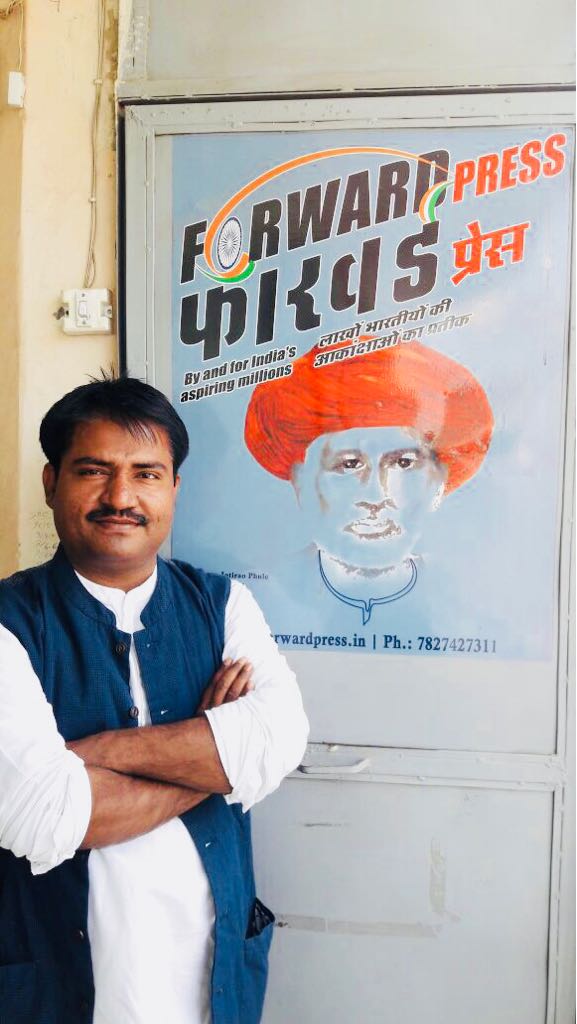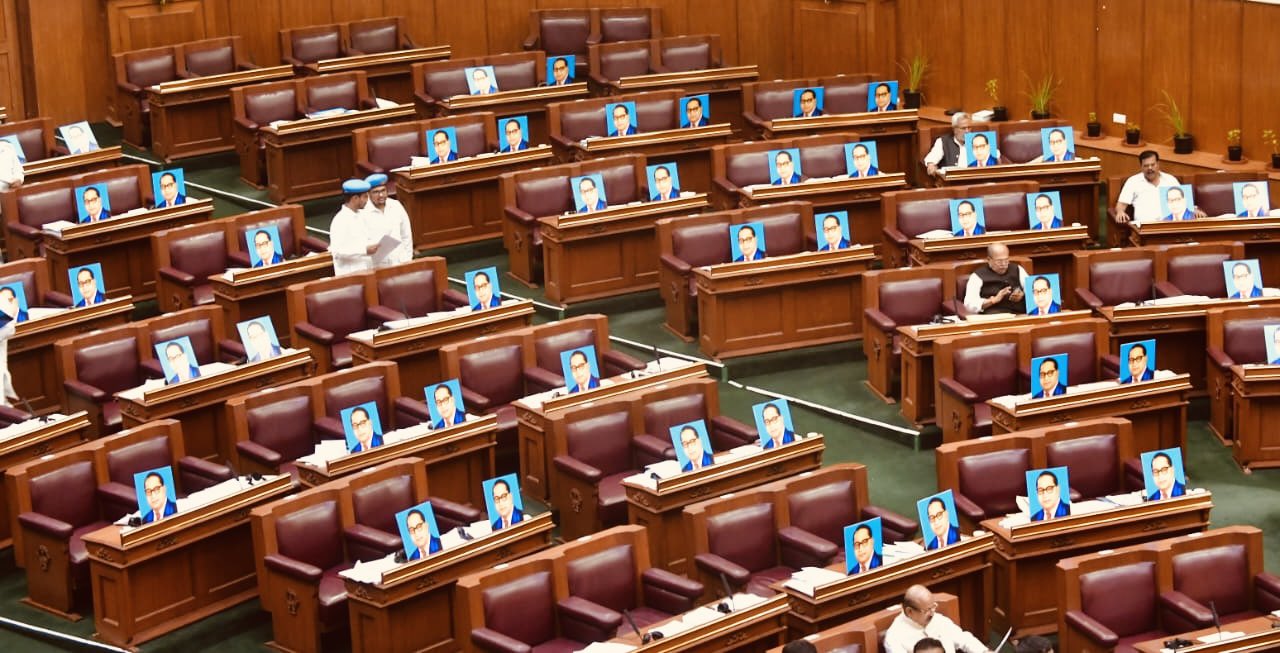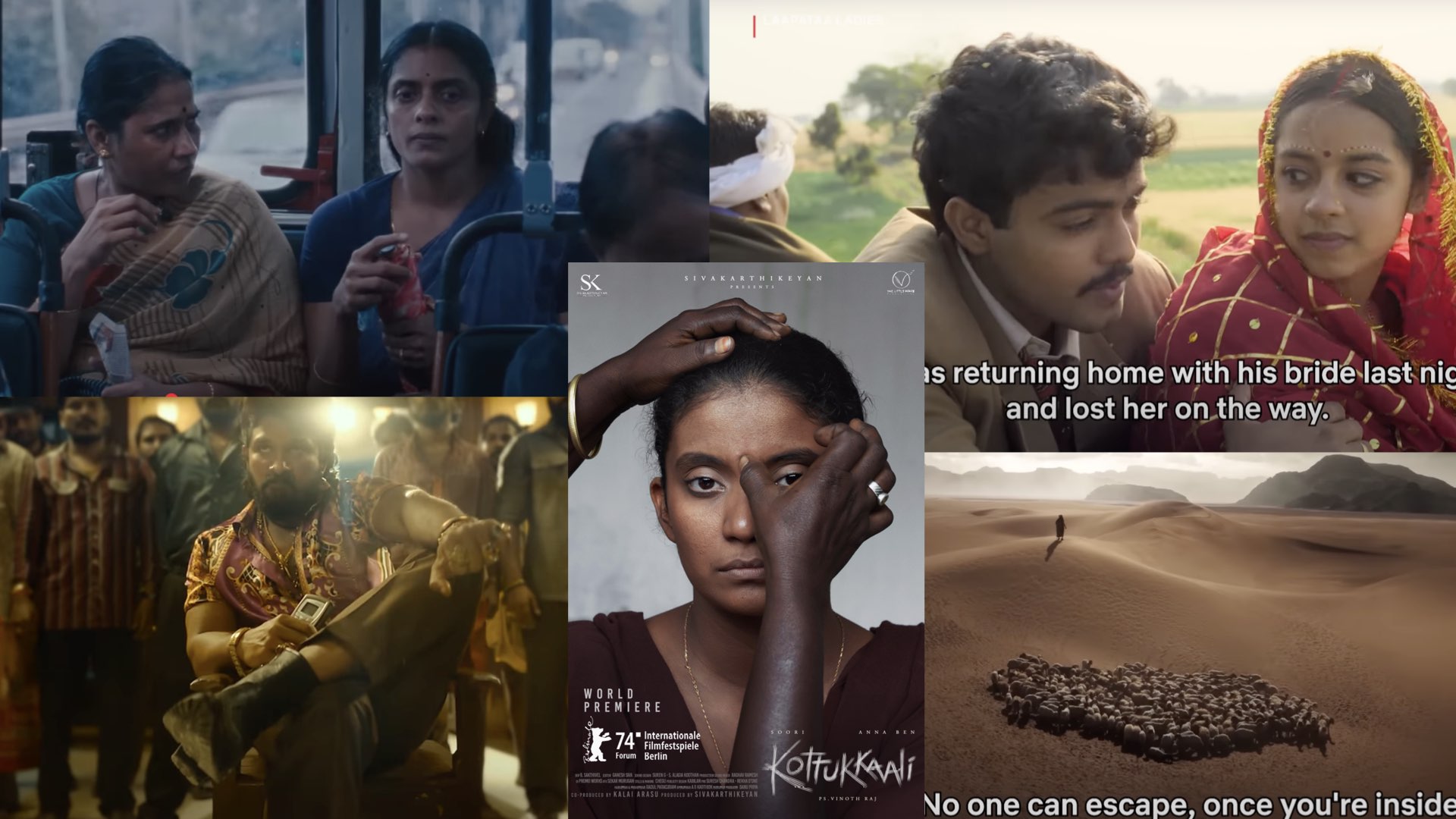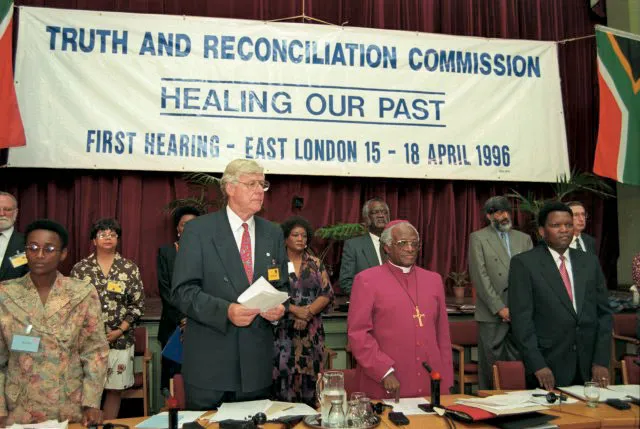Listen to the interview here:
Azamgarh and Rampur parliamentary constituencies in Uttar Pradesh had bypolls recently. Pasmandas are in decisive numbers in both the constituencies. Both these constituencies had been considered citadels of the Samajwadi Party (SP). And yet, the Bharatiya Janata Party (BJP) won both. How do you see this?
Let us first try to look at the larger picture. Ruling parties always have an edge in by-elections. There is a great difference between general elections and by-elections. You referred to Rampur and Azamgarh. Yes, it is true that both these Lok Sabha constituencies have been bastions of the Samajwadi Party (SP). The party has been registering consistent wins from both the seats, but now it has lost both the by-elections and the BJP has emerged as the winner. Now, who is ruling the state? Currently, Uttar Pradesh has a BJP government. Many assembly constituencies had elections along with Rampur and Azamgarh. The general trend is that the ruling party has an upper hand in by-elections, especially when they are held within a few months of the formation of the government. In such cases, there is a strong possibility of the victory of the ruling party. I don’t think the BJP’s victory in the polls is unexpected. It is true that the Pasmandas have a substantial population in these two constituencies, but they are not in a majority. It is definitely a big jolt for the SP. But it is too early to conclude that the Pasmandas have abandoned the SP and have jumped onto the BJP bandwagon. Yes, it is true that the Muslims did not come out to vote in as high numbers as they did in the assembly polls. The reason is clear. The assembly elections decide who will form the government in the state. During the assembly elections, the general impression was that the SP was close to victory and might form the government in the state. That filled the SP supporters with great enthusiasm. They came out in huge numbers to cast their votes. Pasmanda Muslims were also among them. As for the bypolls, the voters knew pretty well that the results will have no impact on the government. That is why, the Muslim voters, and even more so the Pasmandas, would not have been very enthusiastic. These people are already on the margins of society. Bread and butter is their prime concern. But I want to reiterate that it would be hasty to conclude that the Pasmandas have parted ways with the SP and have joined hands with the BJP. At least the bypolls outcomes don’t show this.
Recently, Prime Minister Narendra Modi urged the BJP leaders to link up with the Pasmandas. What have you to say about it?
I would like to touch on two points. The first is the choice of the voters. For the past several years, in fact, several decades now, the Muslims haven’t been voting for the BJP. The party doesn’t find favour even with the upper-class Muslim voters. But has the BJP ever indicated that it wants Muslim votes? That it wants to gain Muslim support? The BJP doesn’t nominate Muslims as its candidates. Different leaders of the party have been making anti-Muslim statements. Day by day their tone is getting shriller and their words, more aggressive. Even as this has been happening, has the party sent out a message that it wants to win over Muslim voters? The prime minister’s urging that you are referring to is the outcome of some recent developments. Nupur Sharma’s controversial statements drew the ire of many Muslim-majority countries. The comments were widely criticized. A message went out to the world that this is what is happening in India. In a way, India’s global image took a beating. I think what we are hearing now is part of a damage-control exercise, an attempt to preserve the image of India. That is why the prime minister is also saying that the BJP should link up with the Pasmanda Muslims. “Sabha Saath, Sabka Vikas, Sabka Vishwas”, is their slogan. And he wants his urging to be seen in keeping with the slogan. He wants the Muslim community to join the BJP. Even among the Muslims, he is targeting a specific section. He is addressing a specific section of the Muslims. Which is this section? It is that section of the Muslims that is socially and economically backward. Many of them have benefitted in one way or the other from government schemes. Different schemes, whether related to ration or health or LPG, are in force in different regions, in different states. The prime minister feels that this section should know that the central government cares for them. It is trying to make facilities available to them. The Pasmanda Muslims are the target group of the prime minister’s statement. Some of them may develop a liking for the party and may lean towards it.
As far as I can remember, the Pasmanda movement began in Bihar. It was Nitish Kumar who first recognized the movement and began a new initiative. Do you feel that what began in Bihar is now having an impact nationally?
First, let us try to understand why Nitish Kumar did what he did. I am not saying that he was not interested in the welfare of Pasmanda Muslims. He may have wanted the Pasmandas to develop and progress, just as all the other communities, but he also had a political compulsion. We need to understand what it was. Janata Dal United (JDU) has been in alliance with the BJP for a long time. Now, association with the BJP meant that the JDU could not have hoped that the Muslims would vote for it. An analysis of the results of several elections showed that the Muslims were inclined to the RJD. The JDU wanted to expand its popular base. It was looking to get a foothold among Muslim voters. The talk about Pasmanda Muslims was, basically, a political stratagem to achieve this objective. I would like to reiterate once again that I am not at all suggesting that the wellbeing of the Muslims was not on Nitish Kumar’s mind. He wanted the welfare of the Muslim masses, just as governments provides different kinds of benefits to other communities. But what is certain is that he had twin objectives. He hoped that the benefits provided to the Muslims would also benefit his own party. So he came up with a new argument and a new line of thinking that when we talk of Muslim voters, we should remember that Muslims are not a monolithic community – it has different layers. He also used the term Pasmanda to convey that there are a large number of Muslims who are backward in political, social and political terms and that the government should pay attention to them, just as it is paying attention to the other communities. The Pasmandas are socially and economically backward. They are almost on a par with the Dalits. So, just as the government makes special provisions for the Dalits – scholarships, reservations, etc – it should do for the Pasmandas, too. This was what Nitish Kumar’s initiative was. This did work somewhat in Bihar. But it would be hasty to conclude that this experiment would be successful in the rest of the country. Nitish Kumar did experiment with this model in Bihar. But I think it won’t be easy to implement it across the country.
One more phenomenon is visible. The so-called liberal parties – whether RJD or SP or even the Congress – they all talk a great deal about the interests of the Muslims. But they give little representation to the Pasmandas. This makes the Pasmandas resentful, which is also a reason why the BJP is seeing an opportunity here.
Exactly. You see, for many decades, the talking point in national politics was OBC voters. But for the past decade, we have not been hearing much about the OBCs. Now, we hear about the lower OBCs and the upper OBCs within the broader OBC umbrella. The BJP observed keenly which sections of the OBCs got a bigger share – their representation in political and social spheres, about their representation in jobs. If we look at different states, you will find that it is the upper layer of the OBCs that is enjoying the cream, the benefits of government schemes. Besides the Yadavs, the Kurmis, the Koeris, etc, there is a long list of OBC castes, which we call lower OBCs. In Uttar Pradesh, there are many OBC castes. But these three castes are cornering all the benefits. A similar analysis can be done with respect to the other states. It was in this context that the BJP-led central government appointed the Rohini Commission. Its report is still awaited. But you see the government took an initiative and it benefited the BJP. The BJP has strengthened its position among the lower OBCs in many states. Now, the lower OBCs vote en bloc for the BJP. This is a big development. The BJP wants to woo the Pasmandas in the same way. It is not easy but the BJP is trying. How is it trying? The upper section of the Muslim community, which is happy and prosperous in economic and social terms and has some share in politics, too – this section has always been leaning towards the so-called secular parties, as you mentioned. The BJP feels it would be difficult to change the preferences of this section but it believes Pasmanda Muslims are different. It will be easier for it to get a foothold among the Pasmandas than among the upper-class Muslims. Secondly, the Pasmandas, to some extent, are getting the benefits of government schemes. So the BJP’s message to them is that you may think that the government is ignoring you but that is not the case. You are also the beneficiaries of government schemes. The BJP knows that if it has to make inroads into the Muslim community, it will have to start with the Pasmandas and not the upper-class Muslims. So this is what the BJP is trying to do. I will again repeat that this is a good initiative but success won’t be easily forthcoming.
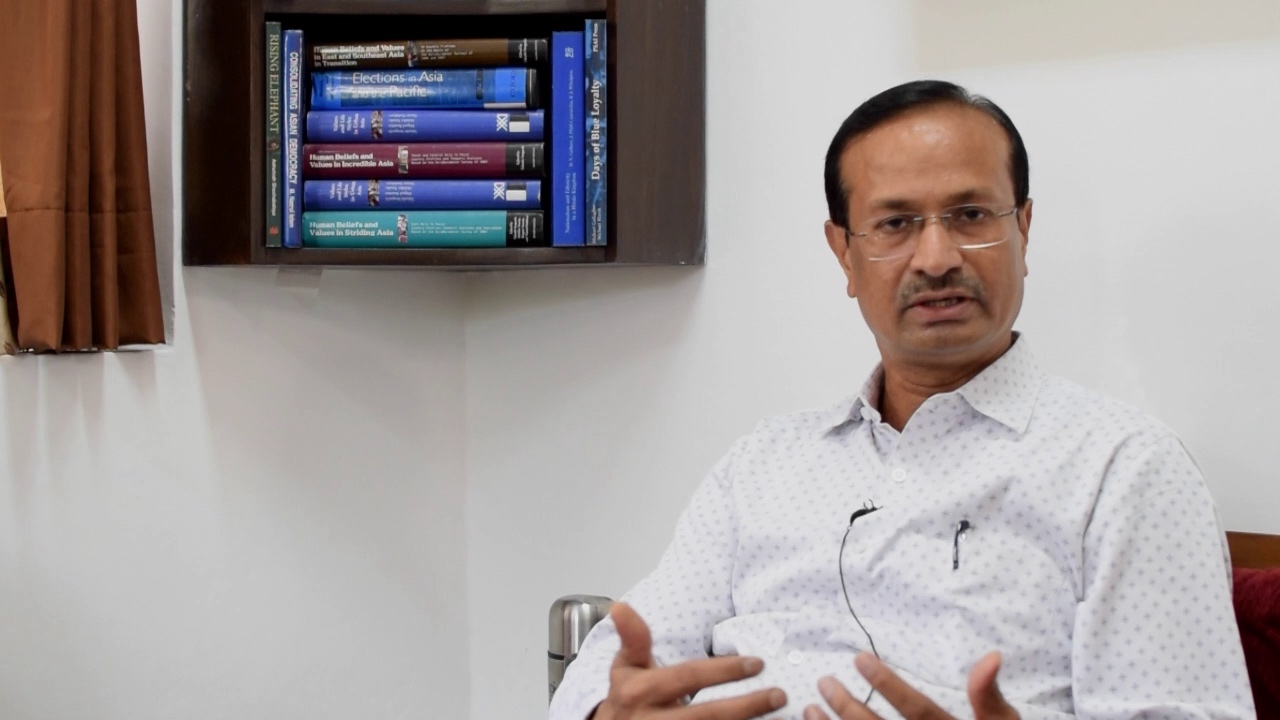
You referred to the Rohini Commission. Its term has been extended for the 13th time recently. Don’t you think the lower OBCs or the Extremely Backward Classes are feeling cheated?
I don’t think so. Those who know that the term of the Rohini Commission has been extended for the 13th time also know who the people in the commission are. This is not a matter of public debate among the lower OBCs till now. The day they will come to know, it will become a matter of public debate and then maybe, they will feel cheated. Or maybe, they will be willing to wait for some more time. Since this is not a matter of public debate yet, I don’t think the lower OBCs feel that the government is cheating them. But multiple term extensions are sending out a message that there are some hurdles due to which the commission is unable to submit its report.
But doesn’t this raise an important question? There was this hope among the lower OBCs that they too will now benefit from the provision of reservations. But when no initiative is being taken for the sub-categorization of the OBCs, they must be feeling somewhat disappointed. This may impact the elections.
You see, reservations are there for all. When OBC reservations were introduced, categorization was not done. Some may feel that they are not benefiting from the provision of reservations. Why? They are not benefiting because of their economic and educational backwardness. So, they are not able to take advantage of the provision. Technically, they cannot complain that they are not getting reservations. So, it was the government’s decision that the Rohini Commission will not only count OBCs but it will also ascertain the extent of socio-economic backwardness among the various castes. This is an initiative for categorization. Once the commission submits its report, the government will decide whether the 27 per cent quota for the OBCs should be subdivided. So, the lower OBC must be anguished, or in other words, they would have this complaint that there is the provision of reservations but most of the quota is cornered by the upper OBCs, leaving them with nothing. But technically, all the OBCs are eligible. All [OBCs] have equal right to reservation.
The upper OBCs are leaning towards the BJP. If we look at Rampur or Azamgarh or the earlier elections, the Yadavs, the Kushwahas and the Kurmis have been leaning towards the BJP. Is this the reason why the term of the Rohini Commission is being extended repeatedly?
No. I don’t think they are leaning towards the BJP. A slight tilt may be seen compared with the past. The castes you referred to – Yadavs, Kurmis and Kushwahas – they all come under the OBCs. In assembly elections, they lean towards the regional parties. In Lok Sabha elections, they back the BJP more than they back the regional parties. The reason is clear. In national elections, they don’t see the regional parties they have been backing for years, whether it is SP or RJD or any other party, standing any chance of forming the government at the Centre, so they lean towards the BJP, especially Narendra Modi. That is why we can see some change. Even then, in Lok Sabha elections, a big chunk of the votes of these castes still go to the regional parties. We have compiled data for the past 20-30 years and studied it. From that study it is very clear that in the long term, these voters have been backing the regional parties, which they call their own parties. They are firmly with these parties.
Don’t you think that the BJP is on the back foot on the issues of sub-categorization? Or maybe, it doesn’t want to antagonize the upper OBCs?
It is very difficult to say with certainty that the BJP is ignoring this issue. The Rohini Commission is working on it. We will have to talk to them and find out what hurdles they are facing. I think the problem is different. They don’t have the figures. They don’t know what the population of the OBCs is. The demand for counting the OBCs has been made for a long time. But the commission doesn’t have the data on the basis of which it could sub-categorize the OBCs. They don’t know what the population of different OBC castes is, what their proportion should be in the central or state government jobs. The commission doesn’t know where to start. You can say they don’t have the raw material. If there is no raw material in a factory, you may employ the best of engineers, but they won’t be able to produce anything. Now, if we start speculating that production is not happening because there are no consumers or buyers, we will be jumping the gun. When there is no raw material, when there is no data, on what basis will they do the work assigned to them? They should first know the population of the different castes. Then, they will have to assess the educational, social and economic status of the different castes – who is higher and who is lower. You will need figures. You need to know how many of them are in jobs, how many of them are educated. As for the resources, they should know how much land they have and the amenities they have in their homes. When they have data on all this, only then they will be able to classify the castes. I don’t agree with the observation that the BJP wants to skirt the issue. I think the problem lies somewhere else. The problem is that the commission is unable to do its job because it doesn’t have the raw material.
But, still, the government’s motives are suspect. The government has simply refused to hold a caste census.
Now, here, we are linking two things. The commission is not able to do its job because it doesn’t have the raw material and the government is not taking any initiative to make the raw material available. When Rajnath Singh was the Minister for Home Affairs, he had said that the OBCs would also be counted in the next census. But the government backed out on this assurance. If we see all these things in their entirety, if we link them, then what you are saying appears to be true – that the government wants to skirt the issue, it wants to back out. It doesn’t want to start a new row. So, there are indications, hints. If we join the dots, what becomes clear is that the government is at least not very enthusiastic. It is not taking any initiative in the matter.
Last question. Do you think the RSS has any role in the change in the attitude of the government towards the Pasmandas?
I won’t be able to say much on this issue because I don’t have any knowledge about it. But we do keep on hearing that when the BJP is in power, the ideology and opinion of the RSS do play a role when rules and laws are made, especially on issues that have a major bearing on society. On all such issues, the opinion of the Sangh is sought. Maybe, it was done in this case, too.
(Translation: Amrish Herdenia; copy-editing: Anil)
Forward Press also publishes books on Bahujan issues. Forward Press Books sheds light on the widespread problems as well as the finer aspects of Bahujan (Dalit, OBC, Adivasi, Nomadic, Pasmanda) society, culture, literature and politics. Contact us for a list of FP Books’ titles and to order. Mobile: +917827427311, Email: info@forwardmagazine.in)
The titles from Forward Press Books are also available on Kindle and these e-books cost less than their print versions. Browse and buy:
The Case for Bahujan Literature
Dalit Panthers: An Authoritative History


